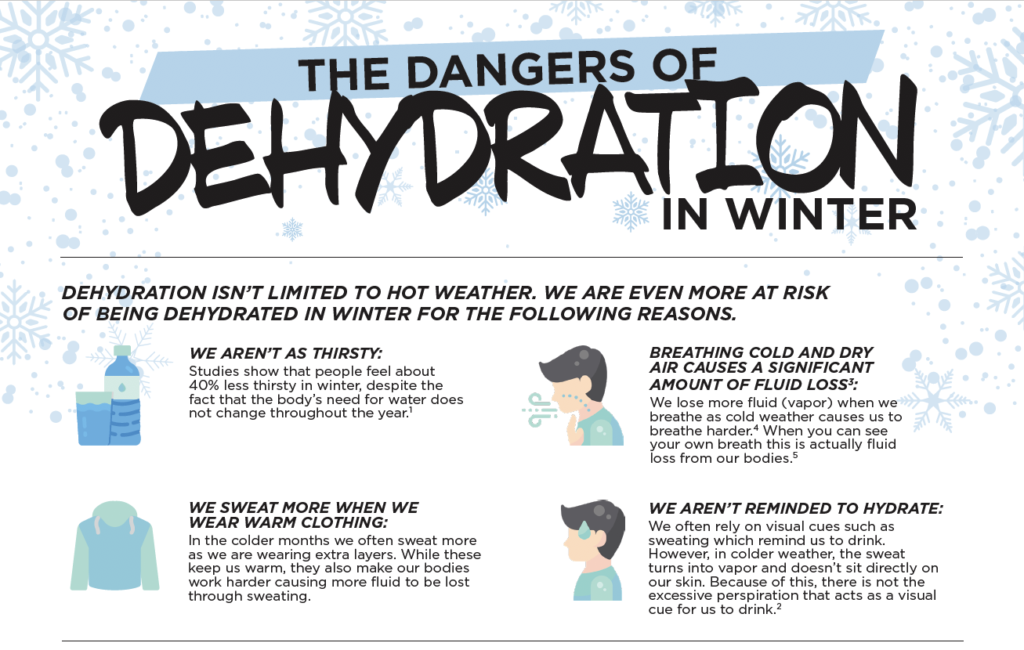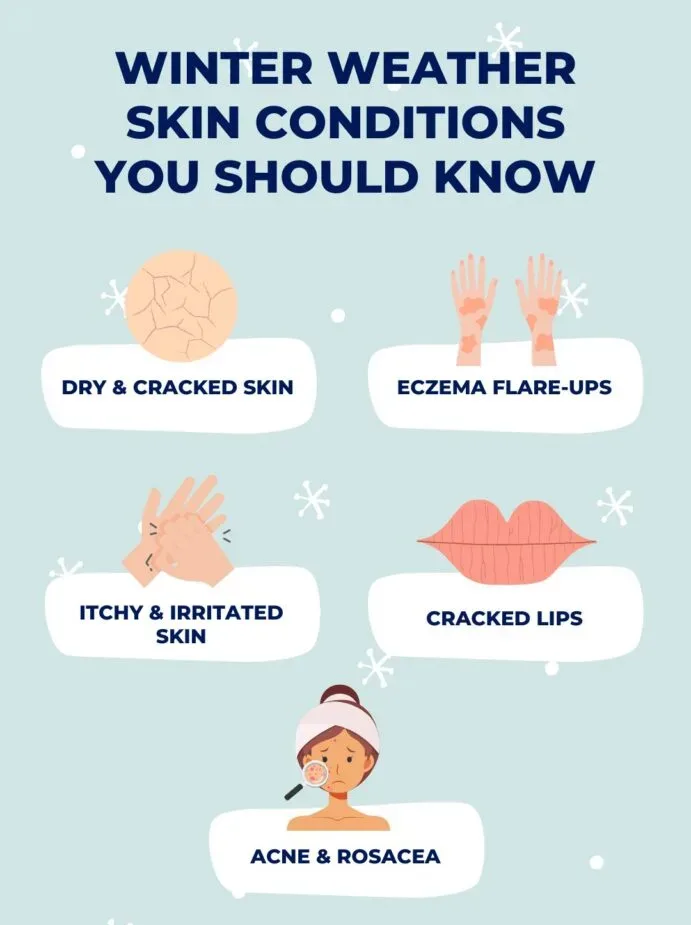As the temperature drops and frost decorates the landscape, it’s easy to assume that our bodies need less water during the winter months. After all, the scorching heat isn’t there to remind us of our thirst and the chilly weather often diminishes our desire for a cold glass of water. However, the implications of drinking less water in winter are often underestimated and the consequences can be more severe than we realize.
Hydration plays a vital role in maintaining our overall health and well-being. During winter, several factors contribute to less water intake. From the reduced sensation of thirst due to the colder weather to the preference for warm beverages like coffee, tea and cocoa, many individuals inadvertently consume less water during this time. But this shift in hydration habits can lead to a range of implications:
Dehydration:

Despite the cooler temperatures, our bodies continue to lose water through breathing, sweating and urination. Cold & dry air can also contribute to increased water loss through respiration. When we don’t replenish this lost fluid, dehydration becomes a lurking risk. It might not be as immediately noticeable as it is in hot weather, but it’s just as dangerous.
Skin Issues:
The winter season poses a significant challenge to skin health, exacerbated by less water intake. As the frigid air robs moisture from the skin, dehydration amplifies these effects which lead to host multiple issues. Skin becomes parched, losing its natural moisture barrier resulting in dryness, flakiness and sensitivity. Drinking lee water can intensify existing skin conditions like eczema or psoriasis causing discomfort and aggravating symptoms. Adequate hydration is crucial as it aids in maintaining skin suppleness, fortifying the skin against winter’s harsh elements and mitigating the onset or severity of these skin afflictions.

Immune System Compromise:
Dehydration can significantly impact the immune system, especially during winter when our body’s defenses are already under siege from seasonal threats like cold and flu viruses. When we’re dehydrated, our immune system may not function at its best. Adequate hydration supports the production of lymph (a fluid that carries white blood cells and nutrients throughout the body) which is crucial for immune function. Less water intake can impair this process, reducing the body’s ability to fight off infections effectively. It also affects the mucous membranes in our respiratory tract which make it less effective as a barrier against pathogens.

Circulatory Problems:
In colder weather, blood vessels constrict to preserve body heat. Drinking less water can make blood thicker and more difficult to circulate which potentially lead to increased blood pressure and strain on the heart.

Exercise Performance:
For those who maintain an exercise routine throughout the winter, inadequate hydration and less water intake can significantly impact performance. Proper hydration is key for muscle function, endurance and recovery.

Mental Health:
Believe it or not, hydration impacts our mental well-being. Dehydration can cause fatigue, mood swings and difficulty in concentration which affect our overall mental health during the already challenging winter season.

How to stay Hydrated During Winter

Absolutely, staying hydrated in winter is vital despite the chilly weather. Here are some tips to ensure you maintain adequate hydration:
- Drink Water Regularly: Set reminders or schedule times to drink water throughout the day. Even if you don’t feel thirsty, your body still needs hydration.
- Opt for Warm Beverages: Embrace herbal teas, warm water with lemon or broths. They not only provide warmth but also contribute to your daily fluid intake.
- Hydrating Foods: Incorporate fruits and vegetables with high water content into your diet. Citrus fruits, watermelon, cucumbers and celery are excellent choices.
- Use a Humidifier: Combat the dry indoor air by using a humidifier. It helps add moisture to the environment, preventing excessive dehydration from heating systems.
- Monitor Urine Color: Check the color of your urine as a simple indicator of hydration. Aim for a pale yellow color which is a sign of adequate hydration.
- Water Before and After Activities: Before heading outdoors or engaging in physical activities, drink water. Replenish fluids afterward to compensate for any loss due to sweating.
- Don’t Underestimate Thirst: Sometimes in colder weather, thirst signals might be less noticeable. So listen to your body and drink water regularly regardless of the external temperature cues.
- Carry a Water Bottle: Keep a water bottle with you wherever you go, making it convenient to sip water consistently throughout the day.
Remember, while the sensation of thirst might be reduced in winter, your body’s need for hydration remains constant. These simple adjustments can make a significant difference in maintaining optimal hydration levels during the winter months. By staying mindful of our hydration habits and actively ensuring adequate water intake we can safeguard our health and well-being throughout the winter months.
For more related news Click Here.

